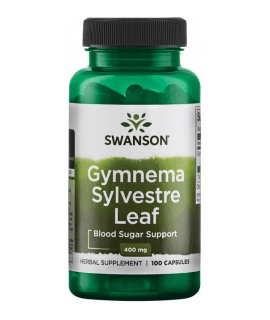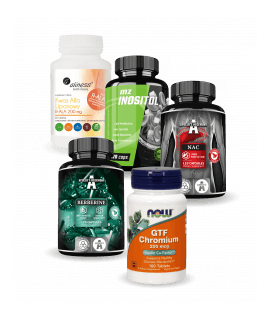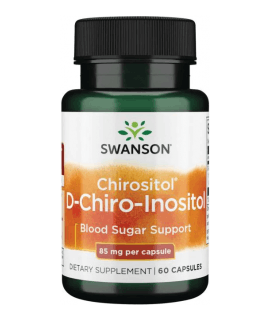Berberine, as we can hear in its name, is the main active ingredient of ornamental and medicinal berberis. The berberine is rich in the roots and bark of this plant, and because it is an alkaloid with antibiotic properties, it has long been used to treat these two herbal raw materials for a variety of infectious diseases. As a remedy, berberis have already been used by the ancient medics of Babylon and India. In the middle ages he was successfully treated with jaundice and malaria. Hildegard's hot celebrity was celebrated at that time, hailed as "the first woman among doctors". And in England in the seventeenth century, this plant began to be widely used as a remedy against liver disease. Berberis has been recommended in the absence of appetite, gallstone disease, chronic hepatitis, gallbladder failure, and as a diastolic agent, also in kidney stones and in many other diseases. In addition to antimicrobial activity, berberine has anti-proliferative, anti-diarrheal, antineoplastic, antidiabetic and anti-inflammatory activity, and also lowers cholesterol and blood pressure. At this point, however, we will focus on the lesser known, but extremely helpful, antidepressant activity of berberine.
The genesis of depression
Which of us did not experience the feeling of sadness or depression in our lives? Sadness usually has a real cause and is usually a short-lived feeling; it takes a few, or at most - dozen or so hours. Worse, when it lasts for weeks or months ... then we are talking about a condition of depression, or depressive disorder. A person suffering from depression cannot reasonably explain the cause of his or her sadness and depression. Depression in depressive disorders usually coexists with other symptoms, such as insomnia or excessive sleepiness, slowing down, loss of appetite, or less likely increased appetite, guilt, inferiority, anxiety attacks, anxiety (stress about everyday life), and hypochondria, an unreasonable fear of health issues. Depression is an extremely troublesome situation where dealing with even everyday issues, including professional or parental responsibilities, can be very difficult or even impossible.
Neurons of our brain communicate with one another through neurotransmitters. The most important of these are acetylcholine, noradrenaline, serotonin, dopamine, histamine, glycine and gamma-aminobutyric acid, abbreviated GABA. Our well-being is all right when the right brain areas produce the right amount of neurotransmitters. When the neurotransmitter starts to run out, there is also a problem with the mood. The theory of depression development, based on the neurochemical environment of the brain, points to the relationship between depression and serotonin, noradrenaline, dopamine and GABA. Serotonin deficiency causes apathy, deconcentration, decreased heart rate and body temperature, severe sleep disturbances, apathy, and depression. Norepinephrine deficiency in the nervous system results in human motivation deficits, because it has an effect on the development and maintenance of good mood, and the decrease in noradrenaline-inducing neuronal activity leads to depression. GABA works in turn relaxingly and promotes healthy, deep sleep, so that we wake up in the morning and rest. In contrast, the dopamine deficit, in addition to the association with schizophrenia and Parkinson's disease, can be a cause of depression and mental haze. Dopamine and serotonin are sometimes called "hormones of happiness", because both relays are responsible for the appearance of euphoria. Dopamine, as well as norepinephrine, belong to the catecholamine group and play a key role in emotional processes and higher psychiatric activities, creating a human relation to his surroundings.
Berberine and neurotransmitters
An important group of antidepressants form the so called monoamine oxidase inhibitors. Monoamine oxidase (MAO) is an enzyme that decomposes serotonin, noradrenaline, and dopamine in the neural tissue, and these neurotransmitters, which are deficient in the brain, lead to depression. Thus, by inhibiting MAO, inhibitors of this enzyme raise the concentration of key neurotransmitters in the brain, giving a clear improvement in the pharmacological treatment of depression.
Because there were indications from previous experiments that berberine also has the ability to inhibit MAO activity and alleviate symptoms of depression (Kong, 2001; Peng, 2007), Indian researchers at Panjab University have designed a study to explain whether this natural plant ingredient actually exhibits real Antidepressant activity (Kulkarni, 2008). The researchers used an animal model in which they treated the mice with a strong stress stimulus (forced swimming or hanging by their hind limbs), followed by the time when the rodents returned after such shock to spontaneous, normal motility. In this way, they demonstrated that berberine shortens the period of immobility in mice both in forced swim tests and in suspension, and this effect is not strictly dose dependent (even low doses are effective here). Observing a return to posttraumatic stress is a good test for the antidepressant activity of a substance. Scientists have shown us that the shocked animals also have typical antidepressants that have also shortened the period of rodent immobility, and berberine increased their potency in this case. Berberine also reversed behavioural depression caused by a compound that promotes the development of depression - reserpine. Serving mice with berberine at a single dose led to an increase in noradrenaline levels (by 31%), serotonin (by 47%) and dopamine (by 31%) throughout the brain. On the other hand, chronic administration of berberine for 15 days significantly increased levels of noradrenaline (by 29%), serotonin (19%), and dopamine (52%), but at higher doses the level of noradrenaline increased by only 12% 53% and dopamine by 31%.

Sigma receptors
Sigma receptors have been described as a subclass of opioid receptors (which react to morphine and similar substances produced by the body itself) in the late 1970s. Sigma-1 and sigma-2 receptor interactions with endogenous neurosteroids (produced by our body of nervous system-acting steroid hormones) and their association with the nervous, endocrine and immune systems are described in the following years. Further studies on the structure and function of the sigma-1 receptor have also allowed us to understand its role in processes related to oxidative stress, nervous system function, neuronal survival and generally possible role in the pathophysiology of various neuropsychiatric disorders.
So now we know that the sigma-1 receptor represents unique caring proteins. Chaperone proteins that are responsible for the proper structure of other proteins. In the central nervous system, under conditions of oxidative stress, inflammation or disorders of calcium metabolism, accumulation of incorrectly folded proteins occurs, which can lead to the development of various neuropsychiatric disorders. Sigma-1 receptor results indicate that substances acting as agonists (activators) of this receptor, by positively affecting the process of proper protein folding can exert neuroprotective effects - protective against nerve tissue. For example, their effects on the symptoms of psychotic depression were described in a group of 59 patients, where the beneficial response to the treatment concerned more than 80% of the respondents (Gatti, 1996). The same team subsequently published further work confirming the efficacy of sigma-1 agonists in the treatment of psychotic depression.
When the authors of the aforementioned study first treated mice, prior to administration of berberine, the sigmoid-1 receptor agonist observed its synergism (multiplication effects) with very small, inactive, normal berberine doses. On the other hand, prior administration of various antagonists (antagonists) of the sigma-1 receptor reversed the effects of antidepressant activity of berberine in the form of shortening of the mice immobility after the withdrawal of stress stimuli.
Berberine for depression - summary
To summarise, the authors conclude that berberine has high antidepressant efficacy, possibly due to its ability to modulate cerebral amino acid concentrations (noradrenaline, serotonin and dopamine) and to activate Sigma1 receptors.










One Comment